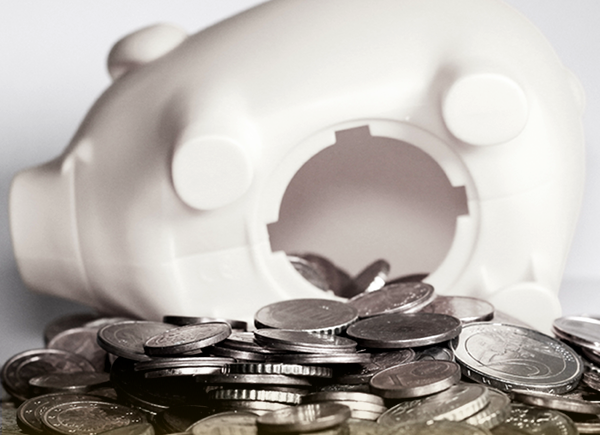The ins and outs of Junior ISAs:
I’m delighted to introduce a guest post from Emma, who writes about money matters at The Money Whisperer. She’s passionate about empowering people to understand how to make the most of the money they have. Her website includes money saving tips, ways to make money and guidance on planning for the future.
We all want the best for our children whilst they are growing up, but also once they are adults and have stopped being dependent on us. How nice would it be to be able to help with a deposit for their first home, university fees or their first car when they reach adulthood?
One great way to help them is to open a Junior Individual Savings Account while they are young, and make regular savings in to it.
What is a Junior Individual Savings Account (JISA)?
Junior ISAs (JISAs) were launched in November 2011 to allow adults to save and invest on behalf of a child under 18. They replaced Child Trust Funds.
There are two types of Junior ISA: a Junior Cash ISA and a Junior Stocks and Shares ISA. A child can only have one Junior Cash ISA and one Junior Stocks and Shares ISA at any one time, but they can hold both. Also, if a child already has a Child Trust Fund, they cannot also have a Junior ISA.
Importantly, earnings within a JISA are not subject to either income or capital gains tax so the money saved within a JISA can grow faster.
A child’s parent or legal guardian can set up a Junior ISA account in their child’s name. They can not be set up by grandparents, although grandparents may contribute once set up.
The amount you can pay in is limited each tax year (a tax year is from 6th April through to 5th April the following year). The current limit for the 2017/2018 tax year is £4,128. The limit for the 2018/19 tax year is £4,260.
Overview of Junior Cash ISA
A Junior Cash ISA is very similar to a bank or building society savings account except that no tax is paid on the interest earned within it. Most children don’t pay tax on their savings anyway as they aren’t earning, so there is no real advantage from a tax perspective to saving within a Cash ISA.
The only time that a Junior Cash ISA is preferable to a bank account is if a parent gives money to a child that generates more than £100 a year in interest. This is because over this level of interest, tax is paid by the child at the parent’s marginal rate. There are very few people who would need to open a Junior Cash ISA to avoid paying any tax on savings in a savings account!
Overview of Junior Stocks and Shares ISA
A Junior Stocks and Shares ISA invests your money into investments like shares and bonds. Any profits earned by trading shares or bonds, and any dividends earned, are free from tax. The key features of a Junior Stocks and Shares ISA are:
- Various people can pay money in to a Junior ISA including parents, grandparents, godparents, friends and relatives.
- Once the money is saved in to a Junior ISA, the money can’t be withdrawn until the child is 18.
- The child can manage their own account and investments from the age of 16.
One thing to bear in mind when taking out a Junior ISA for your child is that they will be able to access this money when they reach 18, and can spend the money how they wish. It is theirs.
Once you pay it in to their Junior ISA, the money is no longer your money. If you are truly determined to lock the money away to save for them, an ISA is a good way to do this as there is no option for you to dip in to it.
Which ISA to choose?
The best rate on the market for a Junior Cash ISA is 3.5% currently. With the rate of inflation sitting at 2.7% (January 2018), Cash ISAs aren’t generating hugely attractive returns right now. A huge chunk of the interest earned is getting eaten up by inflation.
However, in spite of the relatively minimal return you get on your money, Cash ISAs are a safe haven in so far as you know that the amount in the ISA will continue to grow in line with the interest rate.
In contrast, the value of a Stocks and Shares ISA can go up and down. There will always be market downturns but if you look at history, stock market growth trends upward. Over the long term, returns on stocks and shares have historically been better than returns on cash.
The decision on whether to invest in cash or stocks and shares would need to take in to account your appetite to risk as well as the age of your child and how soon they are going to access the money in their ISA. You may want to consider advice from a qualified financial advisor before opening a JISA; they will talk through your motivations and help find the product which is right for your circumstances.
Start early!
If you want to give your children a really good headstart with their future ‘cash pot’, start early. By starting to save early on in their childhood, the power of compound interest comes in to effect, magnifying the amount that your children’s savings are worth.
Compound interest is where interest is made on the interest each year, as well as the initial sum. If interest is re-invested, this means that in the second year, money is earned on both the original amount saved and that interest. This happens year after year if the original amount and the interest are left in the pot.
A rule of thumb is that a 7 per cent return for 10 years doubles the original money. If it is then left for a further 10 years at 7 per cent, it doubles again. It’s easy to see why Albert Einstein called compound interest the eighth wonder of the world!
The secret to having a decent pot of savings for your children when they fly the nest is to start saving as early as possible, even with relatively small amounts. Each small deposit in to an ISA you make now could go a long way towards your child’s future.
Emma can be found on Facebook, Twitter and in her Moneywise Mum group, where she encourages parents to share ways to better their family finances.
** Please be aware that any form of stock market investment can go up and down over time. You may want to consider advice from a qualified financial advisor before opening a Stocks and Shares ISA.**




